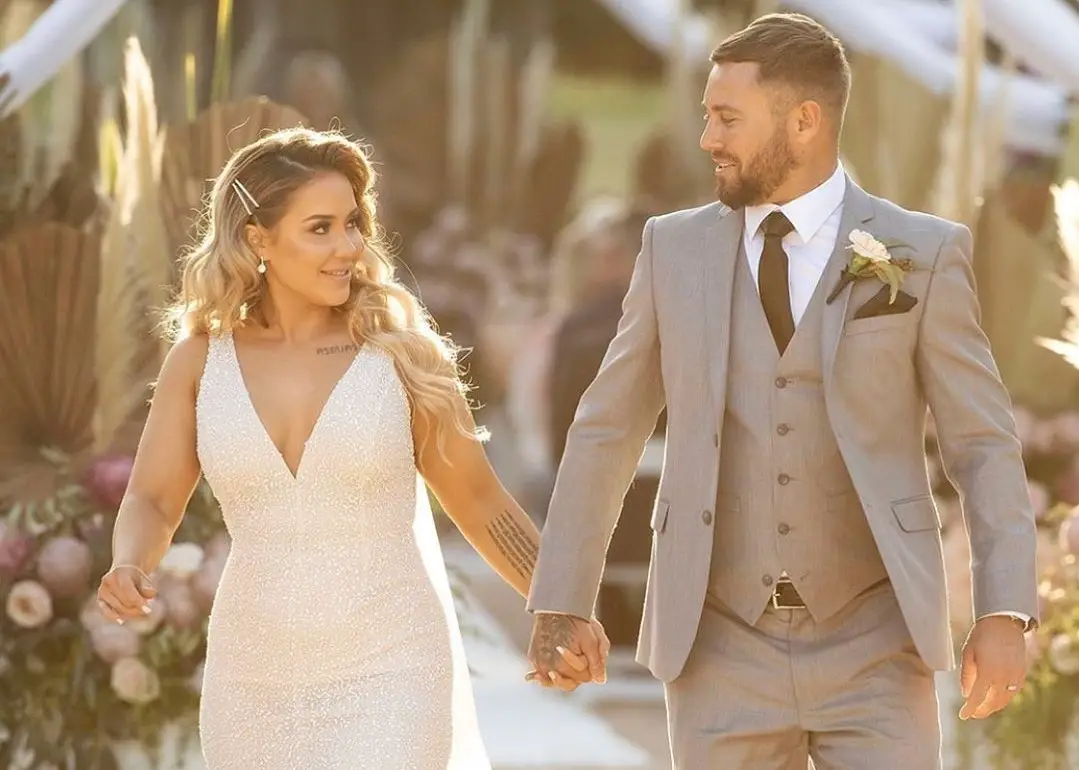Everyone has a guilty pleasure. For me, it’s Lifetime’s “Married at First Sight.” Nine of the highly addicting reality show’s 11 seasons can be binged on Hulu in a matter of weeks, and if you’re anything like me, you won’t be able to stop watching.
In the world of entertainment, shows about relationships are becoming increasingly popular. Series like “90 Day Fiancé,” “Too Hot to Handle” and “Love is Blind” are prevalent in pop culture right now — but why?
It’s all about the drama. When relationships aren’t allowed to progress naturally and are then combined with the too-close-for-comfort production aspect it takes to create an engaging show for viewers, it brews the perfect storm. But when romance and drama are paired together, it brings into question how watching these shows can affect young people’s views on relationships, marriage and love.
What is “Married at First Sight”?
The title is self-explanatory — the show is about people getting married who have never met, seen or talked to each other before.
In the show, there’s a group of a few “experts” who are the main puppet masters of the show; while they have been occasionally switched out throughout the seasons, the current experts include psychotherapist Dr. Viviana Coles, pastor and marriage counselor Calvin Roberson, and sociologist Dr. Pepper Schwartz. The experts tend to refer to the show as a social experiment, sort of a modern take on arranged marriage.
The show began in 2014, and its 11th season began in July of this year. Each season has a very similar structure. In the first episode, known as the “Matchmaking Special,” the experts interview hundreds of eligible singles who are hoping to be married at first sight. The psychologists talk with these people about everything — sex, religion, personal relationship history — in hopes of getting an inside look into their personalities and what kind of partner would be a good match for them.
“We’re looking at things like their psychological testing, their core values. These are legally binding marriages. Annulment is not an option,” said Pastor Calvin Roberson.
The team of experts then narrows it down to about 50 singles, and conducts a second round of interviews, even going to people’s houses to get a sense of their daily routine and living conditions. After this, the experts pair anywhere from three to five couples, deem them “engaged,” and contact them to let them know they’ll be legally married to a person they don’t know in just a couple of weeks. The second episode of each season shows the chosen singles preparing for their big day, from picking their wedding dresses and suits to dealing with the challenges of having to tell their families that they’ll be marrying a complete stranger.
After the weddings, the rest of the show basically documents how each couple is getting along with each other, sorting out issues and dealing with married life in general. The experts have the couples go through counseling sessions and do different exercises to help them grow in their relationship. Then, after eight weeks of marriage, each couple decides whether they want to remain married or get a divorce.
After all this, you might be wondering why people want to get married to a stranger in the first place. It might sound harsh, but it all comes down to simple desperation. We all know the dating scene can be tough, and in the world of hookup culture, dating apps and commitment-phobes, it’s often frustrating for those who are looking for something a little more serious. The couples on this show are usually in their late 20s, 30s or even 40s, and they’re ready for a full-time commitment. Many of the hopeful singles interviewed for the show are at a place in their lives where they want to settle down, have kids and start their fairytale life. When all you want is to finally get married, it might not seem so bad to put your romantic fate in the experts’ hands to pair you with someone who will be your perfect match.
How is this premise harmful?
Is the premise of “Married at First Sight” detrimental to college-aged people? Long story short, it could be. In college, we’re still learning about relationships and what they should look like. We’re navigating the world of dating through trial and error, and it’s important that we see healthy relationships in the media.
One potentially harmful trope we see in “Married at First Sight” is the idea that physical attraction is not overly important in relationships. While this can be true in certain circumstances, it can often cause problems between couples when one person is not physically or sexually attracted to their partner. Some couples on “Married at First Sight” get lucky — they feel an immediate physical attraction to the person they are paired with. However, there are also couples on the show that never develop this type of attraction to their new spouse.
For example, throughout the eighth season, couple Luke and Kate struggle with this issue. In fact, when Luke first kissed Kate on their honeymoon he claimed he felt “repulsed and dead inside.” This lack of attraction was detrimental to the relationship, and the couple ended up getting a divorce.
We’ve seen this “looks aren’t important” scenario before — in the popular Netflix series “Love is Blind,” couples don’t get to see each other until they’re engaged, and are only able to go on short dates with a wall separating them. The idea of the show is that emotional connection will always prevail over physical connection, but the reality is that it usually doesn’t work that way.
Another issue with this format is the forced “connection” these people make with their spouses. The truth is that while marriage can be arranged, love cannot. Many of the couples have seemingly forced themselves to love their partner, which can be emotionally damaging to them — and it can also affect the way young viewers feel about their own dating life. In some ways, this can perpetuate the idea that people should try to stay in relationships that aren’t working, no matter how tough it gets, which can lead to toxic situations.
Seeing people get married to complete strangers can have an interesting effect on how we view marriage in general. While walking down the aisle and saying “I do” is typically a huge step in a relationship that’s supposed to last a lifetime, “Married at First Sight” paints marriage as a fun little experiment. It can subconsciously cause us to underestimate the importance and value of choosing to marry someone.
All things considered, it’s impossible to say whether or not “Married at First Sight” could perpetuate harmful ideas of what relationships are supposed to be. What it all comes down to in the end is what media you consume, and how you let it affect your thoughts and feelings.

















